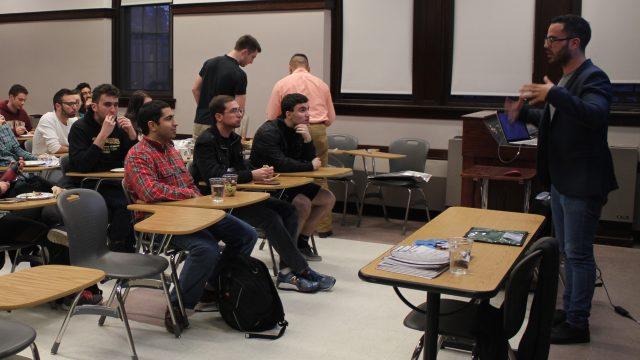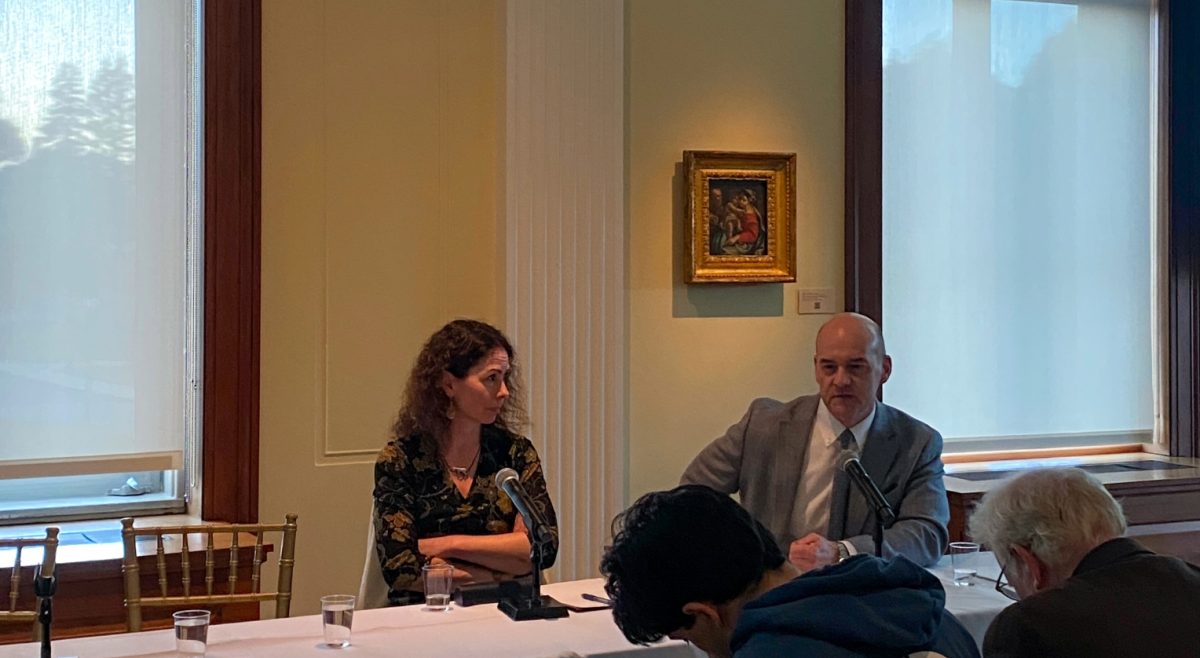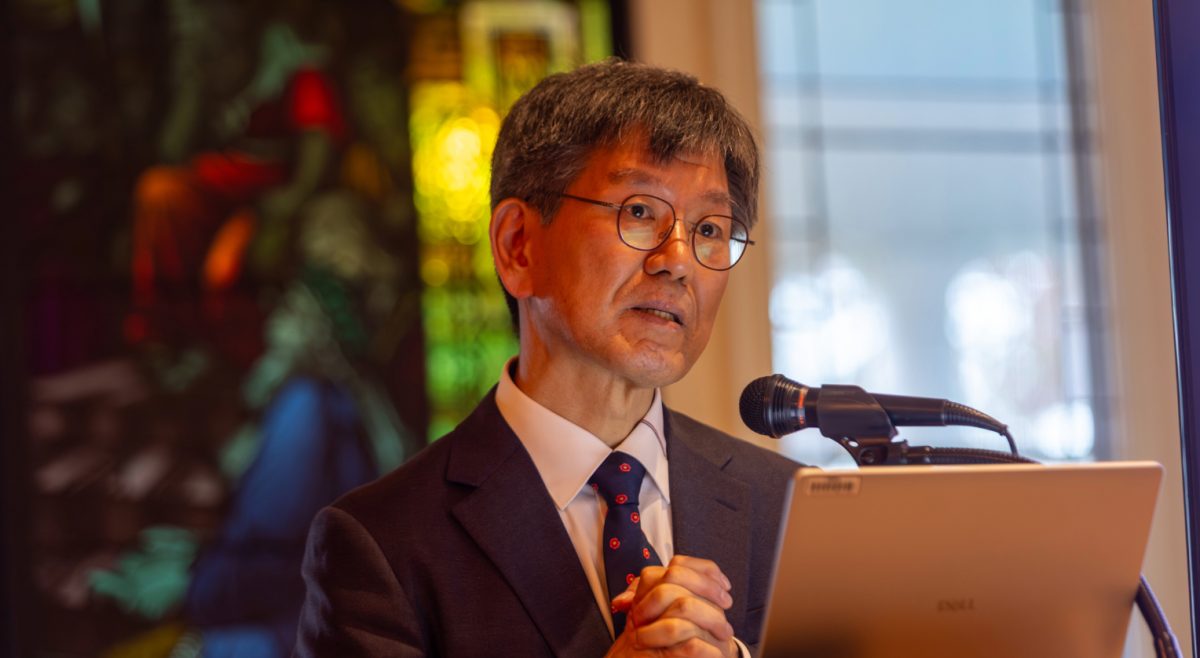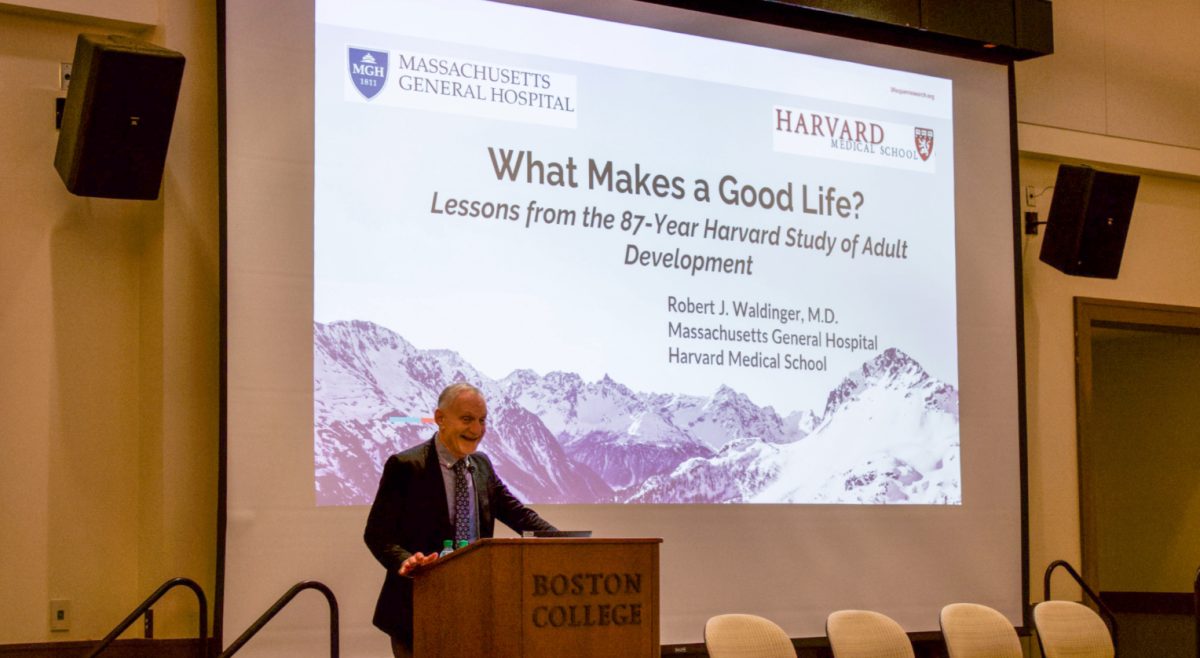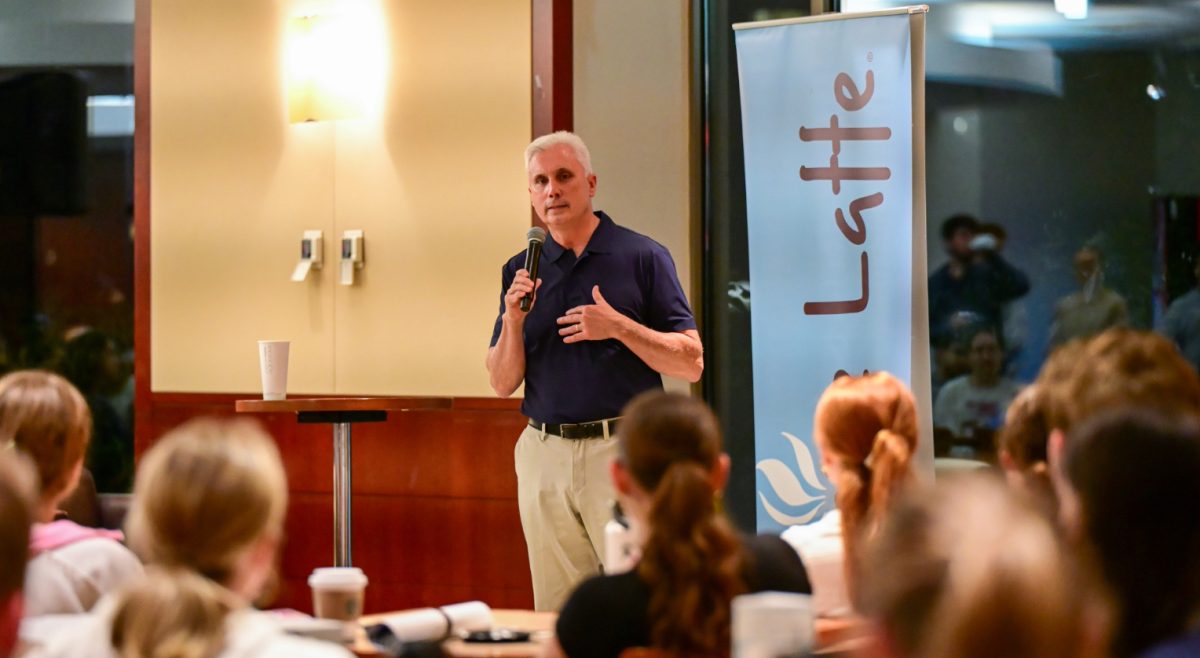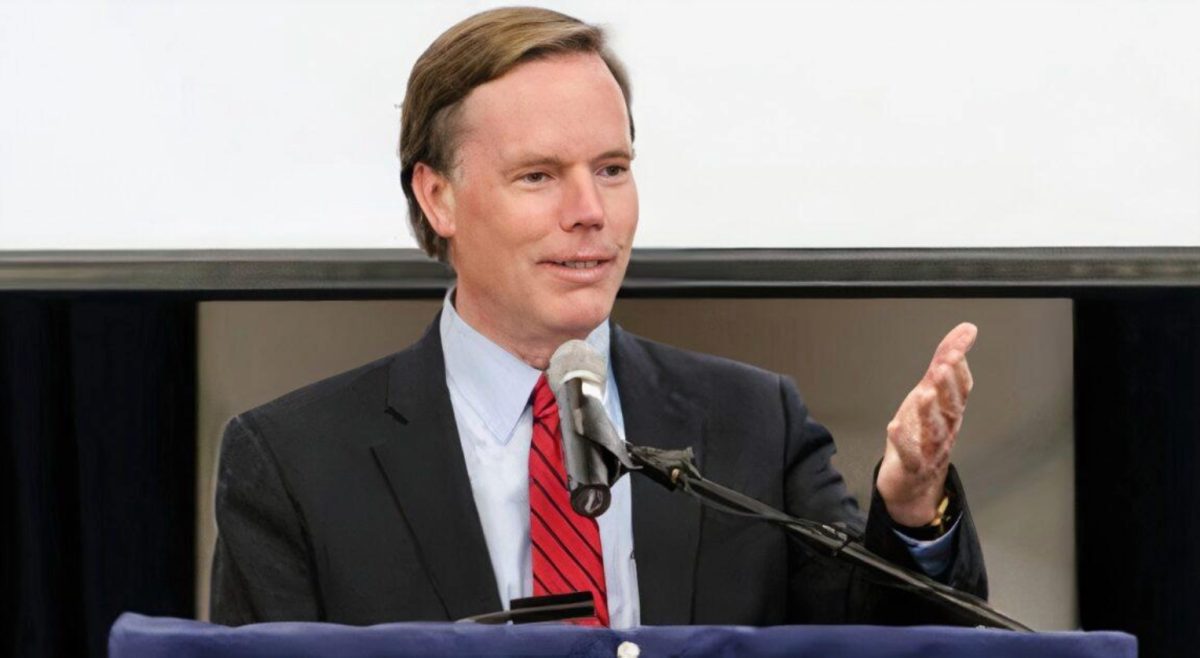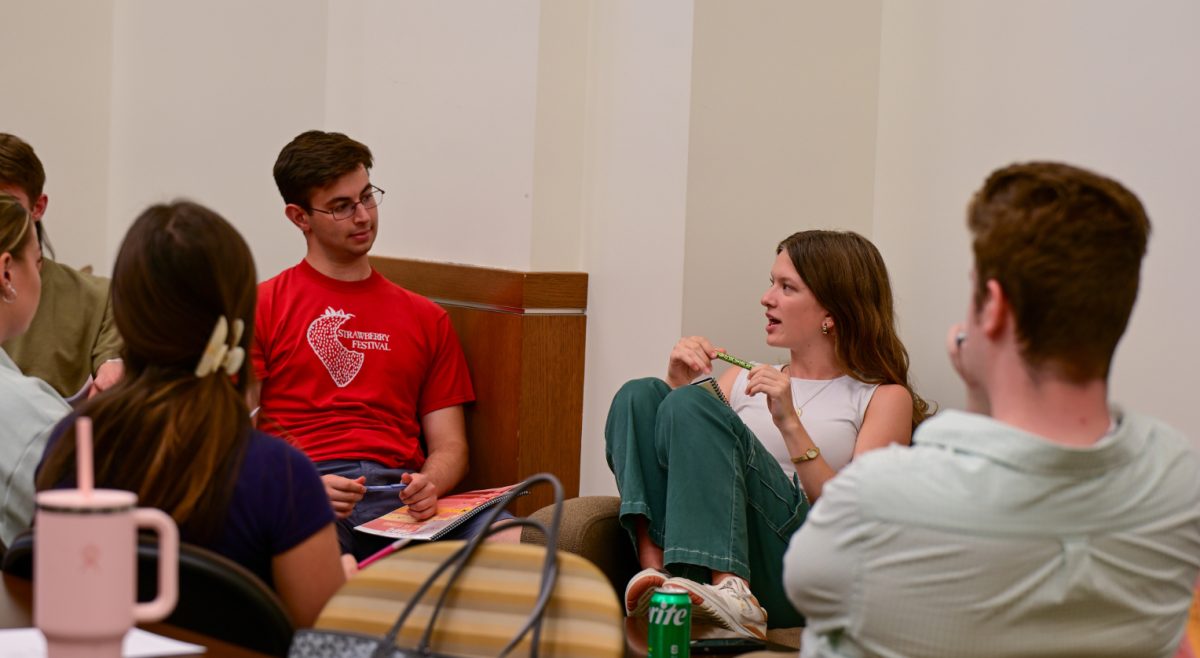In October 2016, Hen Mazzig, an Israeli writer and activist, tried to meet with a Jewish student group at University College London (UCL) as anti-Israel protesters outside threatened to enter the classroom where he was speaking. After the UCL students who had come to hear him speak were gotten to safety, Mazzig, hidden in a police coat, was hustled past the protesters, who were just beginning to crash through the windows of the classroom in which Mazzig and the students had barricaded themselves.
“The idea that I need to fight for the ability to share my story—that I need to fight for the ability to justify the existence of my country—is always shocking to me,” Mazzig said.
Mazzig, an Israeli writer and activist, spoke to Boston College students on Monday, delivering a presentation titled “Diverse and Proud: Intersectionality and Zionism” as part of his ongoing speaking tour of 15 universities on the East Coast.
For the past three years, Mazzig has advocated against the burgeoning B.D.S. movement (boycott, divestment, and sanctions) directed against Israel for its occupation of the West Bank.
“I’m a secular Jew—I don’t believe in God, but the God I don’t believe in is the Jewish God,” Mazzig said to audience laughter.
His talk was sponsored by Eagles for Israel, with the support of CAMERA on Campus, a branch of the Committee for Accuracy in Middle East Reporting in America.
CAMERA on Campus describes itself as working to encourage “accurate, Zionist coverage of the situation in and around Israel” on university campuses.
Mazzig, who is openly gay, was for five years a commander in the Israel Defense Forces (IDF) and a member of the Coordinator of Government Activities in the Territories (COGAT)—a unit that liaises with the Palestinian Authority, the United Nations, and other international organizations.
Mazzig began his remarks by relating the stories of his maternal and paternal grandparents, who, after facing years of violent oppression, were eventually forced to flee Iraq and Tunisia, respectively, in 1951.
Their suffering, and that of nearly 850,000 other Mizrahi Jewish refugees who fled to Israel from neighboring countries from around 1948 to the late 1960s, is being “completely ignored,” Mazzig said.
“It is a story that is not being told enough—the story of Jewish refugees from the Middle East and North Africa, almost 1 million people, who never received justice,” Mazzig said.
Mazzig lamented that growing support for the Palestinian cause worldwide has arrived without even-handed recognition of the struggles of the Jewish refugees who fled oppression and violence in Arab countries years ago.
“The only thing I want is acknowledgement,” Mazzig said. “Once people are educated about this issue, then we can think of peace, because peace is [the] understanding and acknowledgement of history.”
Mazzig spoke of his experiences with the Israeli COGAT unit in the West Bank, as he worked to minimize civilian casualties during security operations, ensure the Geneva Convention was upheld, and improve infrastructure in Hebron, Jerusalem, and Ramallah.
Mazzig is a member of the Israeli National LGBT Task Force, and focuses much of his advocacy efforts toward LGBTQ+ rights in Israel and around the world.
Even though much progress has been made—transgender individuals serve openly in the IDF, and Tel Aviv was named the most gay-friendly city in the world in a 2011 survey—Mazzig said there is “still a lot of work to be done” to realize the full acceptance of LGBTQ+ persons in Israel.
“Israel is not perfect, Israelis are not perfect, and Israeli soldiers sometimes make mistakes,” Mazzig said. “The story of Israel is of a country that is a work in progress but is fighting every day to become something great.”

